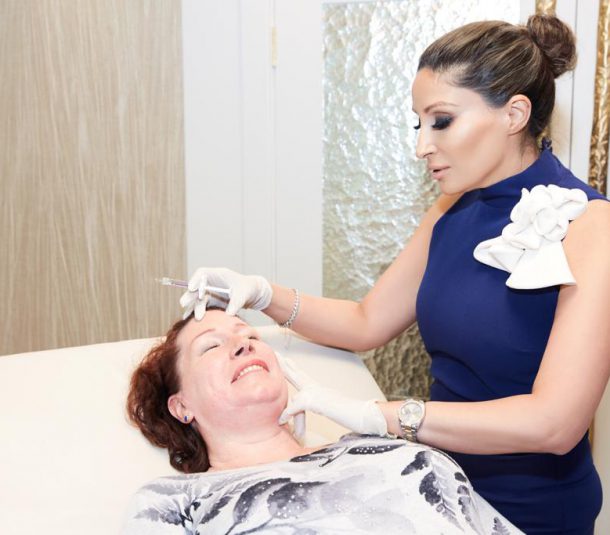News

What is the Difference Between Botox and Fillers?
24th September 2020Botox and fillers are both hugely popular cosmetic procedures and for many the two terms are interchangeable. However – they have different uses, as we explain here.
Botox and fillers are both hugely popular cosmetic procedures and for many the two terms are interchangeable.
However, while they might address broadly similar concerns, they are not the same. They work in different ways and each is more suited to certain requirements and patients.
Some responses looking at the differences are also overly technical. We will touch upon the technical, scientific differences in this post, but we will also look at the question that is likely to be of more value to anyone considering botox and facial fillers.
Which is the more suitable for them?
Botox v Fillers – An Easy Choice?
You may be surprised to learn that in many instances it is actually relatively easy to say which is the more suitable.
The choice won’t be the same for everyone, but given a patient’s requirements, given the nature of the lines or wrinkles they are keen to address, it will often be true that either fillers or botox are the better option.
It is also worth noting that any cosmetic dermatologist or skincare expert worthy of the name should be able to advise and suggest a course of treatment taking the client’s needs into consideration.
Movement vs Static
One key differentiator is that botox is often the better choice for wrinkles that come and go as we move our face or change expression. Facial fillers are geared towards the permanent lines and wrinkles, those that remain whatever our facial expression.
The reason for this is because botox and fillers work in very different ways. They both address lines and wrinkles, they both smooth the face and make the person appear that bit more youthful, but they do not do this in the same way.
How Botox Works
Botox is the short name botulinum toxin. It is most commonly used by those wishing to tackle facial wrinkles although it is also cleared to treat other conditions, these including blepharospasms, strabismus, and muscle dystonias. Botox injections can also be used to tackle excessive sweating and are also a treatment sometimes used to help those who suffer from severe migraines.
Botox reduces the activity of muscles, so when it is skilfully applied to a specific area it can repress the muscles that are engaged as our face moves and create lines or wrinkles. The skill of the person applying the botox is crucial, ensuring a result that looks natural rather than one where it is obvious a procedure has taken place and the face has a somewhat frozen appearance.
The botox is relaxing the muscles and so reducing tension, in this way it can also be used for what is known as a neck lift, providing a lifting effect.
Botox can be highly targeted, working on the tiny muscles around the eye for instance.
How Facial Fillers Work
While botox is repressing muscles, fillers work as the name implies, by filling in the areas of concern with collagen.
This helps to stimulate further collagen production in the face and so smooths out the visible lines and wrinkles and gives a smoother, more youthful appearance.
As with botox, the skill of the person administering the filler is of prime importance, they have to factor in the amount of collagen regeneration that is likely and how this will impact appearance.
Fillers can be used to fill some deep lines on the face and they can also be an effective way to help reduce the visibility of acne scars.
Botox v Fillers – Which is the right treatment
The differences between the two mean that the ‘right treatment’ will vary by patient.
Fillers might appear to have an advantage in that they are longer lasting, they can last 18 months compared to around six for botox, but this is a bi-product of how they work in different ways. Fillers would not be as effective a treatment for those lines and wrinkles that are caused dynamically, by facial movement.
With fillers, there are often more options, different types of fillers each more suited to specific requirements. This is a benefit if you use a skilled practitioner, but a disadvantage if you use someone less experienced. One issue with both fillers and botox is that they can be administered by people with limited experience – and poor results can follow.
Neither botox or fillers typically have side effects beyond some initial bruising and swelling. Of course, as these are injections into sensitive areas of the face, other side effects are possible if the person administering lacks skill or experience.
Although hairdressers and unqualified beauticians can in many cases offer treatments, we would strongly advise against going down this route. Savings a relatively small amount of money – money saved because the person lacks qualifications – could lead to inferior products being used and results that are sub standard.
With both fillers and botox, you should opt for a high quality practitioner or avoid this form of treatment.
Do You Need To Know Which Is The Right Choice?
You may well determine from the above that either botox or fillers are more suitable – or you may be thinking that a combination of both would be ideal.
However, it is always worth having a consultation to discuss your requirements and concerns; to ask questions and take the advice of the expert.
If you have signs of ageing that are of concern, lines and wrinkles, frowns and crevices then it is likely that either botox or facial fillers can make a marked difference, improving your appearance and also self esteem and confidence.
About Dr Nyla
Dr Nyla is one of the leading cosmetic dermatologists in the UK – she is trusted by many high-profile clients and her expertise makes her someone that media publications regularly seek an opinion from.
Her cosmetic clinic is the largest outside London and also the only Diamond Clinic outside the capital.
Dr Nyla’s clinic won Top Cosmetic Clinic Award in the UK for 2019.
Her testimonials are universally positive and her reviews on the independent TrustPilot site outstanding.
If you would like to arrange a consultation, or simply want further advice please contact us today. Call us on 0800 009 6661 or use the Contact Form.



